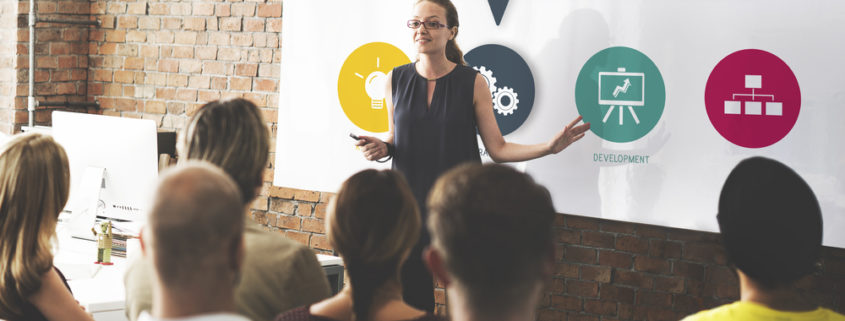
The Power Of Effective Workplace Learning
The Power Of Effective Workplace Learning
Organisations must move away from traditional models of delivering learning and development and focus on creating a culture where employees have the opportunity to develop and learn continuously according to a Deloitte survey of 1200 global organisations.
The report includes a new four-level maturity model, which Deloitte says serves as a roadmap to a game-changing learning environment and demonstrates that organisations at the highest level of maturity move beyond traditional capabilities (such as instructional design) to refocus the entire organisation on enabling employees to develop continuously. Deloitte says that when learning and work are integrated, organisations naturally evolve to compete more effectively as business conditions change.
“Most organisations haven’t adapted employee development systems to respond effectively to the accelerating pace of change – change driven by an increasingly global economy, rapid technological advances and a more networked world,” said Deloitte Learning and Development Research Leader Dani Johnson.
“Our research shows organisations should shift away from viewing learning and development as separate, external activities delivered by the learning and development function to the workforce. Instead, they should focus on making employee development the responsibility of the entire organisation – creating a true learning organisation.”
The research reveals that high-maturity organisations are more than twice as likely to rate higher than their low-maturity peers on business outcomes, including efficiency, financial targets, anticipating change and innovation.
Deloitte Learning and Development expert Josh Bersin said corporate learning programs are under extreme stress and struggling to keep up with the pace of change.
“We are in a disruptive time, forcing companies of all sizes to literally reinvent their entire learning strategy, infrastructure and employee experience like never before,” he said.
This quandary is described in the 2017 Deloitte Global Human Capital Trends research, which explains that in our generation some employees face the prospect of 60-year careers at the same time that the half-life of their skills is declining rapidly. These new workplace realities require companies to rethink the way they deliver always-on learning and development opportunities.
Deloitte says that organisations that empower and encourage employees to continuously develop tend to view learning and work as “two sides of the same coin,” using opportunities inherent in work for development, and continuously providing feedback and data that employees use to improve both themselves and the work.
In addition to a more intertwined relationship between work and learning, and a broader definition of what it means to be a true learning organisation, the Deloitte research points to six significant shifts for mature learning and development organisations. The research shows that such organisations:
- Attend to all phases of an employee’s career
Mature organisations consider and support development and performance for employees in their current roles. They also prepare employees for the next positions within the organisations to help them achieve long-term success. - Use technology to experiment and innovate
Instead of using technology to do the same things better, mature organisations completely change the types of developmental opportunities they offer and enable learning in the workplace through technologies integrated into employees’ work. - Use data to measure outcomes rather than activity
Mature organisations collect more data at more frequent intervals from more sources, and therefore better understand their organisations and what they need to make work better. - Create the right conditions, instead of the right content
Rather than concentrate on creating courses, curated content and curricula, mature organisations focus on infrastructure, feedback loops and collecting data to help employees make better decisions about their work and their own development. - Employ design thinking
Mature organisations both think through experiences, including courses and stretch assignments, tailored for development and build in opportunities for reflection and learning from mistakes. - Empower employees
Modern employees are more empowered than they have ever been, and more mature organisations take advantage of this shift.
“Truly mature organisations make employees active participants in their development,” Ms Johnson said.
“Employees in these organisations can often find what they need, when they need it, and seek feedback and data to help them improve. They are also more likely to self-organise to get work done, and change to further their own development and improve work and business outcomes overall.”





